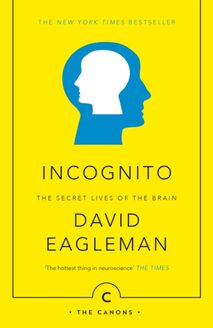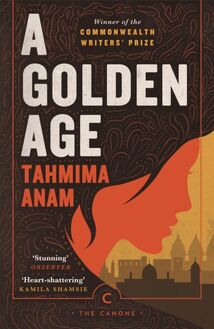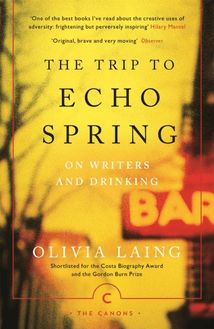-
 Univers
Univers
-
 Ebooks
Ebooks
-
 Livres audio
Livres audio
-
 Presse
Presse
-
 Podcasts
Podcasts
-
 BD
BD
-
 Documents
Documents
-
- Cours
- Révisions
- Ressources pédagogiques
- Sciences de l’éducation
- Manuels scolaires
- Langues
- Travaux de classe
- Annales de BEP
- Etudes supérieures
- Maternelle et primaire
- Fiches de lecture
- Orientation scolaire
- Méthodologie
- Corrigés de devoir
- Annales d’examens et concours
- Annales du bac
- Annales du brevet
- Rapports de stage
La lecture à portée de main
Vous pourrez modifier la taille du texte de cet ouvrage
Découvre YouScribe en t'inscrivant gratuitement
Je m'inscrisDécouvre YouScribe en t'inscrivant gratuitement
Je m'inscrisEn savoir plus
Vous pourrez modifier la taille du texte de cet ouvrage
En savoir plus

Description
Sujets
Informations
| Publié par | Canongate Books |
| Date de parution | 03 février 2022 |
| Nombre de lectures | 0 |
| EAN13 | 9781838858353 |
| Langue | English |
| Poids de l'ouvrage | 1 Mo |
Informations légales : prix de location à la page 0,0400€. Cette information est donnée uniquement à titre indicatif conformément à la législation en vigueur.
Extrait
Tan Twan Eng was born in Penang, Malaysia. His debut novel The Gift of Rain was longlisted for the Man Booker Prize in 2007 and has been widely translated. The Garden of Evening Mists won the Man Asian Literary Prize 2012 and the 2013 Walter Scott Prize for historical fiction and was shortlisted for the Man Booker Prize 2012 and the 2014 International IMPAC Dublin Literary Award. He divides his time between Kuala Lumpur and Cape Town. tantwaneng.com
Also by Tan Twan Eng:
THE GARDEN OF EVENING MISTS
The Canons edition first published in 2022 by Canongate Books 14 High Street, Edinburgh EH1 1TE First published in Great Britain in 2007 by Myrmidon Books Ltd, Rotterdam House, 116 Quayside, Newcastle upon Tyne, England canongate.co.uk Copyright © Tan Twan Eng, 2007 The right of Tan Twan Eng to be identified as theauthor of this work has been asserted by him in accordancewith the Copyright, Designs and Patents Act 1988 This novel is entirely a work of fiction. The names, characters and incidents portrayed in it are the work of the author’s imagination. Any resemblance to actual persons, living or dead, events or localities is entirely coincidental. Grateful acknowledgement is made for permission to reprintexcerpts from the following printed material: Two haiku ( Wild Geese and Dreaming Heart ) from On Love and Barley: Haiku of Basho by Matsuo Basho, translated by Lucien Stryk (Penguin Classics, 1985) © Lucien Stryk Reproduced by permission of Penguin Books LtdLines from The Diving Bell and the Butterfly by Jean-Dominique Bauby(Fourth Estate, 1997) © Jean-Dominique Bauby Reproduced by permission of HarperCollins Publishers LtdTo the heirs and estate of Solomon Bloomgarden (1870 – 1927) the author and publishers express their gratitude and appreciation for the inclusion of his poem Yehoash ( An Old Song ), translated by Marie Syrkin and last published in An Anthology of World Poetry, ed. Mark van Doren (Cassell & Co. Ltd, 1929) British Library Cataloguing-in-Publication Data A catalogue record for this book is available on request from the British Library ISBN 978 1 83885 834 6 eISBN 978 1 83885 835 3
For my parents,
En vir Regter AJ Buys wat my geleer het hoe om te lewe.
‘I am fading away. Slowly but surely. Like the sailor who watches his home shore gradually disappear, I watch my past recede. My old life still burns within me, but more and more of it is reduced to the ashes of memory.’
The Diving-Bell & the Butterfly , Jean-Dominique Bauby
Book One
Chapter One
I was born with the gift of rain, an ancient soothsayer in an even more ancient temple once told me.
This was back in a time when I did not believe in fortune-tellers, when the world was not yet filled with wonder and mystery. I cannot recall her appearance now, the woman who read my face and touched the lines on my palms. She said what she was put into this world to say, to those for whom her prophecies were meant, and then, like every one of us, she left.
I know her words had truth in them, for it always seemed to be raining in my youth. There were days of cloudless skies and unforgiving heat, but the one impression that remains now is of rain, falling from a bank of low floating clouds, smearing the landscape into a Chinese brush painting. Sometimes it rained so often I wondered why the colours around me never faded, were never washed away, leaving the world in mouldy hues.
The day I met Michiko Murakami, too, a tender rain had dampened the world. It had been falling for the past week and I knew more would come with the monsoon. Already the usual roads in Penang had begun to flood, the sea turning to a sullen grey.
On this one evening the rain had momentarily lessened to an almost undetectable mist, as though preparing for her arrival. The light was fading and the scent of wet grass wove through the air like threads entwining with the perfume of the flowers, creating an intricate tapestry of fragrance. I was out on the terrace, alone as I had been for many years, on the edge of sleep, dreaming of another life. The door chimes echoed through the house, hesitant, unfamiliar in a place they seldom entered, like a cat placing a tentative paw on a path it does not habitually walk.
I woke up; far away in time I seemed to hear another chiming, and I lay in my chair, confused. For a few moments a deep sense of loss immobilised me. Then I sat up and my glasses, which had been resting on my chest, fell to the tiles. I picked them up slowly, wiped them clean with my shirt and found the letter which I had been reading lying under the chair. It was an invitation from the Penang Historical Society to mark the fiftieth anniversary of the end of the Second World War. I had never attended any of the society’s events but the invitations still came regularly. I folded it and got up to answer the door.
She was a patient woman, or she was very certain that I would be at home. She rang only once. I made my way through the darkened hallways and opened the heavy oak doors. I guessed her to be in her seventies, not much older than I was. She was still beautiful, her clothes simple in the way only the very expensive can be, her hair fine and soft, pulled back into a knot. She had a single small valise and a long narrow wooden box leaned against her leg.
‘Yes?’ I asked.
She told me her name, with an expectation that seemed to suggest that I had been waiting for her. Yet it still took me a few seconds to find a mention of her in the vastness of my memory.
I had heard her spoken of only once before, by a wistful voice in a distant time. I tried to think of a reason to turn her away but could find none that was acceptable, for I felt that this woman had, ever since that moment, been set upon a path that would lead her to the door of my home. I took the gloved hand she offered. With its scarce flesh and thin prominent bones it felt like a bird, a sparrow with its wings wrapped around itself.
I nodded, smiled sadly and led her through the house, pausing to put the lights on as we passed each room. The clouds had brought the night in early and the servants had already gone home. The marble floors were cold, absorbing the chill of the air but not the echo of our footsteps.
We went out to the terrace and into the garden. We passed a collection of marble statues, a few with broken limbs lying on the grass, mould eating away their luminosity like an incurable skin disease. She followed me silently, and we stopped under the casuarina tree that grew on the edge of the small cliff overlooking the sea. The tree, as old as I, gnarled and tired, gave us a small measure of shelter as the wind shook flecks of water from the leaves into our faces.
‘He lies across there,’ I said, pointing to the island. Though less than a mile from the shore, it appeared like a grey smudge on the sea, almost invisible through the light veil of rain. The obligation to a guest, however unsettling her presence, compelled me to ask, ‘You’ll stay for dinner?’
She nodded. Then, in a swift movement that belied her age, she knelt on the wet earth and brought her head to rest on the grass. I left her there, bowing to the grave of her friend. For the moment we both knew silence was sufficient. The things to be said would come later.
It felt strange to cook for two, and I had to remind myself to double the quantities of ingredients. As always, whenever I cook, I left a wake of opened spice bottles, half cut vegetables, ladles, spoons and various plates dripping with sauces and oil. Maria, my maid, often complains about the mess I leave. She also nags me to replace the kitchen implements, most of which are of pre-war British manu facture and still going strong, if rather noisily and with great cantankerousness, like the old English mining engineers and planters who sit daily in the bar of the Penang Swimming Club, sleeping off their lunches.
I looked out to the garden through the large kitchen windows. She was standing now beneath the tree, her body unmoving as the wind shook the branches and scattered a shower of glittering drops onto her. Her back had retained its straightness and her shoulders were level, without the disconsolate droop of age. Her skin’s suppleness fought against the lines on her face, giving her the look of a determined woman.
She was in the living room when I came through from the kitchen. The room, to which I have never made any changes, was wood-panelled, the plaster ceiling and cornices high and dark. Black marble statues of mythological Roman heroes held torches that only dimly lit up the corners of the room. The chairs were of heavy Burmese teak and covered in cracked leather, their shapes deformed by the generations that had sat on them. My great-grandfather had had them made in Mandalay when he built Istana. A Schumann baby grand piano stood in a corner. I always kept it in perfect tune, although it had not been played for many years.
She was examining a wall of photographs, perhaps hoping to find his face among them. She would be disappointed. I had never had a photograph of Endo-san; among all the photographs we took, there was never one of him, or of us together. His face was painted in my memory.
She pointed to one now. ‘Aikikai Hombu Dojo?’
My eyes followed her finger. ‘Yes,’ I said.
It was a photograph of me, taken at the World Aikido Headquarters, in the Shinjukku district of Tokyo, with Morihei Ueshiba, the founder of aikido. I was dressed in a white cotton gi – a training uniform – and hakama , the traditional black trousers worn by the Japanese, staring intently at the camera’s eye, my hair still dark. Next to my five foot eleven inches, O’ Sensei, the Great Teacher, as he was called, looked tiny, childlike and deceptively vulnerable.
‘You still teach?’
I shook my head. ‘Not any more,’
-
 Univers
Univers
-
 Ebooks
Ebooks
-
 Livres audio
Livres audio
-
 Presse
Presse
-
 Podcasts
Podcasts
-
 BD
BD
-
 Documents
Documents
-
Jeunesse
-
Littérature
-
Ressources professionnelles
-
Santé et bien-être
-
Savoirs
-
Education
-
Loisirs et hobbies
-
Art, musique et cinéma
-
Actualité et débat de société
-
Jeunesse
-
Littérature
-
Ressources professionnelles
-
Santé et bien-être
-
Savoirs
-
Education
-
Loisirs et hobbies
-
Art, musique et cinéma
-
Actualité et débat de société
-
Actualités
-
Lifestyle
-
Presse jeunesse
-
Presse professionnelle
-
Pratique
-
Presse sportive
-
Presse internationale
-
Culture & Médias
-
Action et Aventures
-
Science-fiction et Fantasy
-
Société
-
Jeunesse
-
Littérature
-
Ressources professionnelles
-
Santé et bien-être
-
Savoirs
-
Education
-
Loisirs et hobbies
-
Art, musique et cinéma
-
Actualité et débat de société
- Cours
- Révisions
- Ressources pédagogiques
- Sciences de l’éducation
- Manuels scolaires
- Langues
- Travaux de classe
- Annales de BEP
- Etudes supérieures
- Maternelle et primaire
- Fiches de lecture
- Orientation scolaire
- Méthodologie
- Corrigés de devoir
- Annales d’examens et concours
- Annales du bac
- Annales du brevet
- Rapports de stage




















